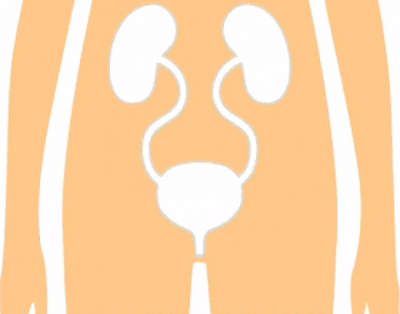
What Causes UTIs in Women?
Women get UTIs up to 30 times more often than men do, but why? We're Uqora - the UTI experts, and we've got the facts below.
We Hear You, UTIs are the Worst.
There are many different causes of UTIs. From anecdotal, clinical, and sample data, sex is the most common UTI trigger. However, it is far from the only cause of infections. Every body is different, and understanding what factors may be the cause is key to getting ahead. Here at Uqora, we are here to help destigmatize UTIs and help guide you every step of your urinary health journey.
What Causes a Urinary Tract Infection?
-

-
1. Bacteria enter the urethra, travel up to the bladder, and multiply.
2. This triggers an inflammatory response in your body which results in the symptoms you associate with a UTI.
3. Women are more likely to get a UTI than men because they have shorter urethras, so bacteria doesn't have to travel as far to reach the bladder.
Factors That Can Cause UTIs in Women
Sexual Activity
As mentioned above, sexual activity is the most commonly reported cause of UTIs. During sexual activity, bacteria, most commonly e. coli, are transferred from the vagina, anus, or sexual partner to the urinary tract. Any form of sexual activity physically moves or transplants bacteria to the urethra, where they can travel up and establish an infection. The longer the time the bacteria have to travel up the urinary tract, the more likely an infection is. This is why peeing after sex is always a good idea. However, this is not always enough to keep bacteria from traveling through the urinary tract.
Exercise
Sweat and moisture allow bacteria to move around when exercising, which can transfer them to the urethra. If the clothes worn while exercising are not breathable, this typically increases moisture and makes bacterial travel more likely. Exercising and then not showering for an extended period of time will allow bacteria more time to travel before washing.
Holding It
Our first line of defense against bacteria entering the urinary tract is physically flushing them out via urination. The more time (the longer we hold it) that we allow bacteria to travel up the urinary tract, the higher the risk of UTI. This is also why people with certain professions, like teachers, nurses, and more, who may not be able to use the bathroom as frequently as they’d like, may experience higher rates of UTIs.
Hormonal Changes
Many women report getting UTIs cyclically immediately following their period. Like with sexual activity, the vaginal ecosystem plays an important role. Pathogenic bacteria thrive at a higher vaginal pH and are normally kept in check at a lower pH. Hormones are also changing as estrogen production dips prior to menstruation. This can make the urinary tract temporarily more vulnerable to infection as bacteria travel from the vagina to the urethra. Increased moisture can also play a part, and research has shown that more frequent changing of feminine hygiene products during menstruation can decrease the risk of UTIs.
Menopause
During menopause, estrogen production declines. This leads to big changes in the vaginal microbiome and a decline in lactobacilli (good bacteria). With a decrease of good bacteria, the vaginal microbiome could become dominated by pathogenic bacteria, even E. Coli. These bacteria are then more likely to travel to the urinary tract. While not necessarily a “cause” of UTIs, menopause, like periods, increases the risk of UTIs from all triggers. Menopausal and postmenopausal UTIs are still often triggered by certain activities, like sex and many other activities. With more pathogenic bacteria around, the more likely these triggers are to cause UTIs.
Travel
Similar to when not urinating for long periods, taking airplane rides and sitting for a long time at once may increase UTI risk. Travel can also be stressful and tiring, which may also contribute to the association between traveling and UTIs. Typical hygiene routines may also be disrupted when traveling, which could lead to a higher likelihood of bacteria getting into the urinary tract. If you’re camping, for example, you’re likely not able to shower or bathe with the regularity you’re used to.
Once you get a UTI, your chances of getting another increase — why?
-

Antibiotics
When you take antibiotics to treat a UTI, they wipe out the good bacteria along with bad. This can put you at a higher risk for another UTI among other vaginal issues, including yeast infections or bacterial vaginosis.
-

Biofilm
Biofilms are sticky networks of microorganisms that act as a shield for certain bacteria, protecting them from your immune system and antibiotics. When bacteria protected by biofilm end their dormancy, they cause what is called a recurring UTI (rUTI). This is a UTI caused by bacteria from the initial infection that was never cleared.

A note from our founder: "I've been there"
I was stuck in this viscious UTI cycle for years and was desperate to get ahead of the issue. After repeatedly being told there was little I could do, my husband and I were inspired to start Uqora. Today Uqora has helped over 400,000 people and counting with our UTI relief products and proactive urinary tract supplements. Are you ready to join us?
— Jenna Ryan, Uqora Co-founder
Our best-selling products: proactive urinary tract health supplements


Each product in our Complete Regimen supports your urinary tract in a different way, keeping you covered from all angles.
The ingredients in Uqora have been well-researched and were each selected for their unique ability to improve urinary tract health.
You’re not alone.
We're helping over 400,000 people of all ages stay healthy with our proactive urinary tract products.
UTIs Happen - We've Got You Covered
That's why we created our UTI Emergency Kit. With this all-in-one bundle you can test if you have a UTI, quickly relieve pain and burning, and control the infection until you can see a doctor.
Trusted by doctors and scientists who believe in being proactive
-

Dr. Alyssa Dweck, MS & MD, FACOG, MSCP
-

Dr. Katherine Klos, Urologist
-

Dr. Payal Bhandari, Functional Medicine M.D.
-

Dr. Susan Mitmesser, PhD
















